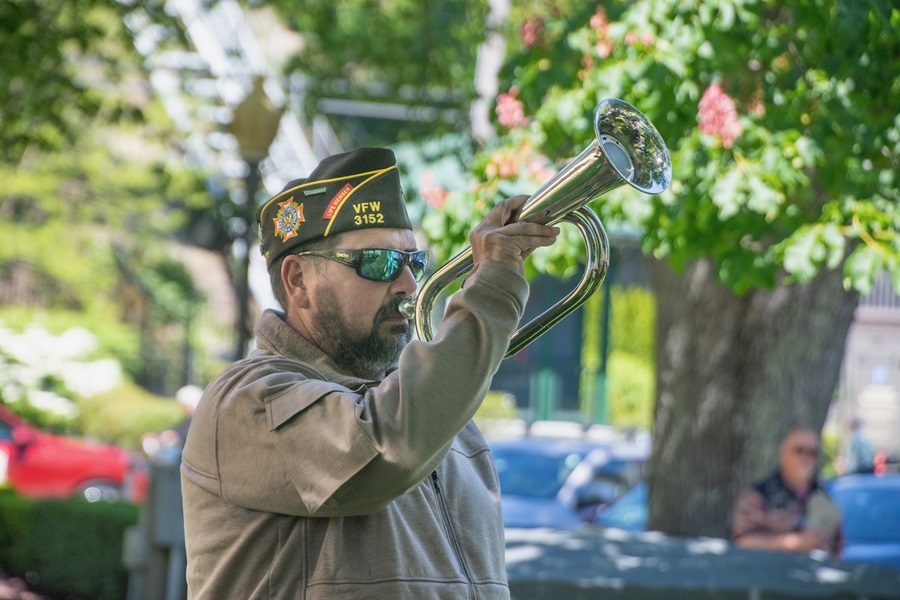
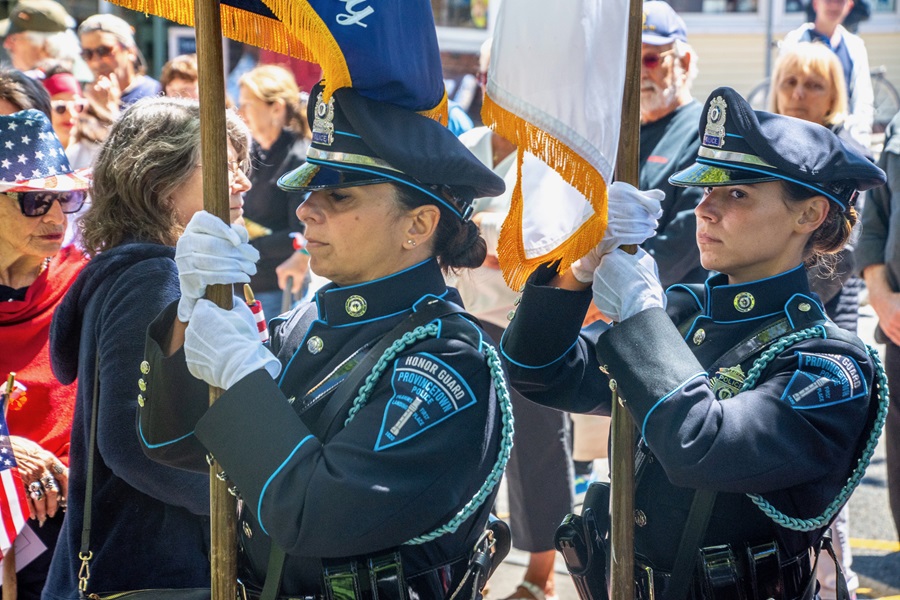
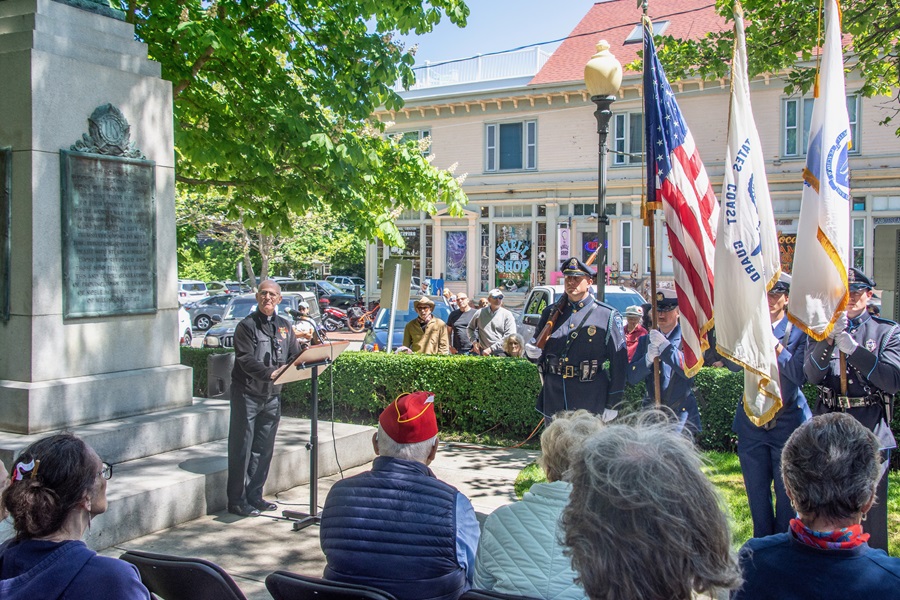
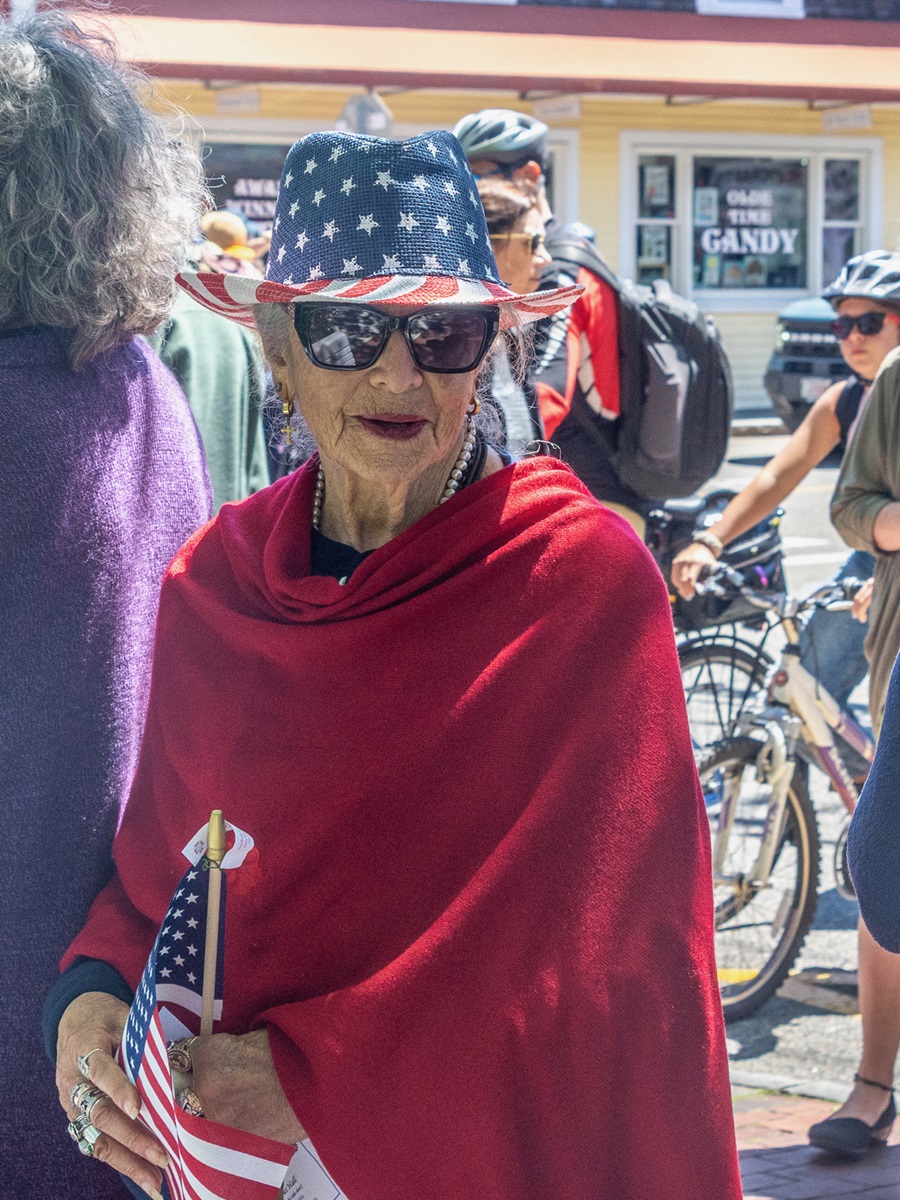
Reach more readers from Eastham to Provincetown.
Your subscription supports real community journalism.
By Nancy Bloom




By The Editors
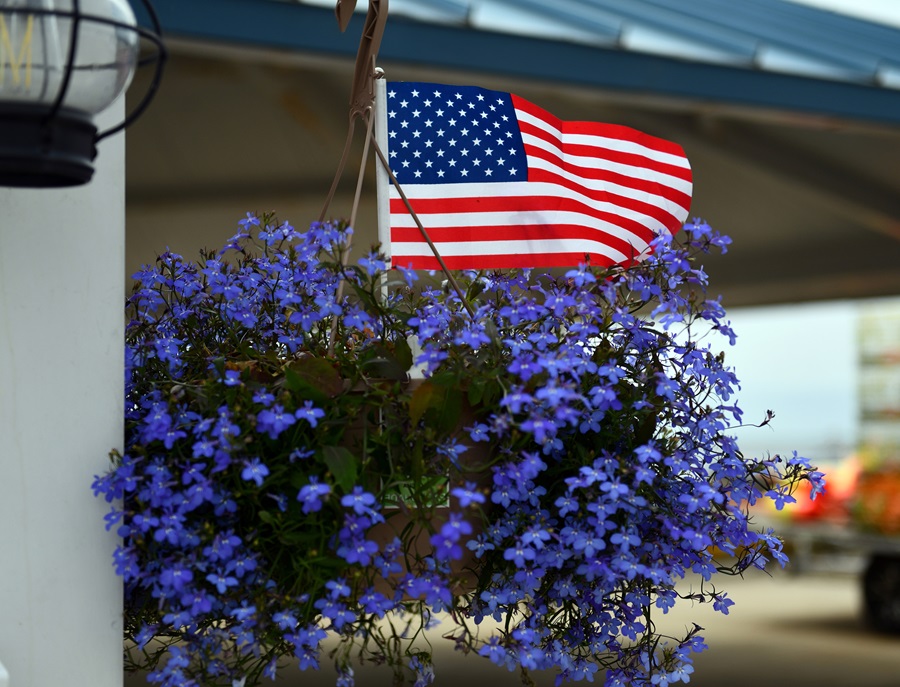
Memorial Day, May 26, is an opportunity to remember the service and sacrifice of local veterans at two ceremonies in Provincetown.
The first is held at the Civil War Veterans Grave at the Provincetown Cemetery. It starts at 10 a.m. with a presentation of colors by an honor guard of the U.S. Coast Guard, Provincetown Station and the Provincetown Police Dept. John Tincum of the American Legion and Craig Butilier of the Veterans of Foreign Wars place the Memorial Wreath. Denise Page sings the National Anthem, and Cavan Butilier plays taps.
A second service begins at 11 a.m. at the Doughboy Soldiers Monument on the Provincetown Town Hall grounds. Remarks will be given by select board chair David Abramson and by the Rev. Peter R. Scheffer, Lt. Col., U.S. Army (ret.), pastor at St. Joan of Arc Parish in Orleans. Thomas Steele of the American Legion and Craig Butilier of the Veterans of Foreign Wars lay the Memorial Wreath. Denise Page sings “Amazing Grace,” and Thomas Osowski plays taps.
Jim Keefe welcomes the community at both events. Opening prayers are offered by the Rev. Mr. Scheffer. Chloe-Marie Osowski leads the Pledge of Allegiance.
By Nancy Bloom
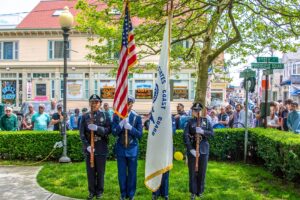
Members of the U.S. Coast Guard and the Provincetown Police Dept. make up the color guard in front of town hall on Memorial Day, May 27. From left, Patrol Officer Simon Saliba, Coast Guard Fireman Wood, Coast Guard Seaman Wright, and Patrol Officer Rebecca Rondeau.
At Provincetown Cemetery
Time: 10 a.m.
Location: Civil War Veterans Grave
After an introduction by master of ceremonies Jim Keefe, members of the U.S. Coast Guard Station Provincetown and the Provincetown Police Dept. Honor Guard will present the colors. An opening prayer will be delivered by the Rev. Bill Rich, Interim Rector at St. Mary of the Harbor.
Following the pledge of allegiance, the national anthem will be sung by Denise Russell. Thomas Steele of the American Legion and Craig Boutilier of the Veterans of Foreign Wars will place the memorial wreath, and the police honor guard will fire a ceremonial volley.
Thomas Osowski will play Taps.
At Provincetown Town Hall
Time: 11 a.m.
Location: Doughboy Soldier Monument
The same ceremonies will be repeated here but will also include Chloe-Marie Osowski leading the pledge of allegiance, and Denise Russell will sing America the Beautiful as well as the national anthem.
I strolled through the Gifford section of the Provincetown Cemetery recently, reading the inscriptions on headstones I found intriguing. Many of the people named on those stones are not in the ground at all. They were lost at sea, but their gravesites offered grieving families a firm place to stand in mourning.
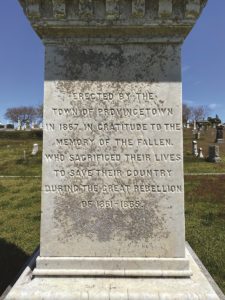 Cemeteries are good places to contemplate history. One particular stone I stopped at told of a young man who died at a place called New Bern, N.C. in the early 1860s. I cannot now recall his name, but his marker brought to mind the likely reason a Provincetown boy would die on that date, in that place: he would have been fighting in the American Civil War.
Cemeteries are good places to contemplate history. One particular stone I stopped at told of a young man who died at a place called New Bern, N.C. in the early 1860s. I cannot now recall his name, but his marker brought to mind the likely reason a Provincetown boy would die on that date, in that place: he would have been fighting in the American Civil War.
A search for other casualties of that war led me to the impressive marble obelisk erected by the citizens of Provincetown to honor those who, as the engraving says, “sacrificed their lives to save their country during the great rebellion of 1861-1865.”
Properly called the Soldiers’ and Sailors’ Monument, it is a memorial to locals who fought on land and sea. Upon its face, in bas-relief, are an anchor, crossed cannons and muskets, and a square-rigged ship under full sail, the pennants atop its masts flying in the wind. At the very tip of the spire is a draped urn, symbolizing immortality.
I like to think those of us who wander graveyards reading stones are immortalizing the dead through our imaginings of who they were and what they stood for. Every Memorial Day, we are encouraged to stop amid our shopping and barbecues to recall those who died so that we can preserve our values and pursue happiness in our own ways.
The trouble is, there is also a kind of immortality to the contentious ideas that our ancestors fought over. The same grievances that led us into civil war were communicated with alarming clarity during the Jan. 6 invasion of our nation’s Capitol. A man walked across the atrium with the Confederate battle flag over his shoulder. Racial epithets were emblazoned on T-shirts. People were killed.
It took us 100 years after the Civil War to pass serious civil rights legislation. The Civil Rights Act of 1964 made discrimination illegal, but it was enforced only sporadically. Just last week, after another half century had slipped by, voters in Provincetown approved funding for an office of diversity, equity, and inclusion. We hope to make a thorough assessment of the structures, processes, and policies that perpetuate the exclusion of marginalized people.
Some of this exclusion may be unconscious, but that does not make it acceptable. Until we face the ugly facts of our country’s origins, we will never achieve the “more perfect union” of the Constitution, nor will we fulfill the promise of “Liberty Enlightening the World.”
We cannot change history, but we can and must face it. We must be honest in how we interpret our history and accurate in how we teach it to our young. No more one-sided stories of heroic Pilgrims, virgin forests, and accommodating Indians. No more happy slaves singing spirituals in the fields. It is time to figure out how to make things as right as possible so we can change our ways going forward.
It will be hard, but if we do not undertake this expiation, there will be more rebellions and more memorials in our future. This Memorial Day, look back in gratitude for the people who gave their lives for our country. Then think forward to what you are going to do to keep it from happening again.
Bonnie McEwan is a communications consultant, writer, and teacher. She lives in Provincetown.
Memorial Day Observed
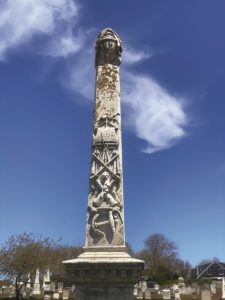
“Provincetown Remembers,” the town’s annual Memorial Day observance, will be held at 11 a.m. Monday, May 31 at Motta Field, 25 Winslow St.
Provincetown police, fire, and EMS personnel, along with representatives from Coast Guard Station Provincetown, will join members of the community in continuing the Provincetown tradition of honoring members of the armed forces who gave their lives in service to our country. Members of the Veterans of Foreign Wars and American Legion will be honored guests.
This year’s ceremony will be held in accordance with current recommendations for preventing the spread of infections. The public is invited to attend and, unless otherwise instructed on that day, will be required to follow social distancing and face mask protocol if not vaccinated.
For further information, contact Jim Keefe at 774-205-0748.
Even in our current predicament, there’s no stopping nature. The daffodils have come and gone, and now the beach plum is fully abloom. The lilacs have begun to release their fragrance and the lily of the valley will soon follow. All remind us that, no matter what winter piles on, a sturdy and resilient spirit wins the day.
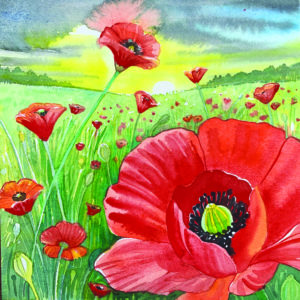
Another returnee is the Oriental poppy, Papaver orientale, a hardy perennial whose dazzling, solitary orange-red flower adds an old-fashioned exuberant charm to the garden. Its rebirth begins inconspicuously as a cluster of hairy leaves emerging from the still-cold ground. The leaves thicken, stiffen, and multiply, and from somewhere deep in their midst comes the sturdy stalk that will grow several feet high, supporting a tightly packed nodding bud. As the seams of the calyx begin to separate, the first hints of the tissue-papery petals will show themselves.
If there is anything disappointing about the full-faced flower and its dark, velvety eye it is its ephemeral nature. Blink and you’ll miss the unfolding of the petals. Blink again and the slightest breeze will have robbed the flower of those petals, leaving only the seed pod. I cut the dry pods every fall, shake the tiny seeds from within, and arrange them in a vase as an elegant winter reminder that warmer days are ahead.
The poppy is legendary for the narcotic effects of some species, particularly Papaver somniferum, the opium poppy, known by the ancient Sumerians as the “joy plant.” Ancient Egyptians buried their dead with the poppy to ensure a peaceful sleep. In Greek mythology, Demeter created the poppy to induce sleep after the abduction of her daughter, Persephone.
If the scourge of addiction brought attention to the opium poppy, the scourge of war brought attention to another member of the family, Papaver rhoeas, the common red poppy. Also known as a field or corn poppy, the wildflower contains rhoeadine, a nonpoisonous mild narcotic. Greek legend tells of this poppy being created by Somnus, the god of sleep. Its seeds, which can lie dormant for years, germinate in rooted-up soil. Profusions of the graceful flower beautify and transform sunny wastes and old fields, though some regard Papaver rhoeas as little more than a weed and the target of herbicides.
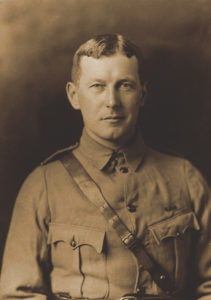
To Lt. Col. John McCrae, a Canadian surgeon attached to the 1st Field Artillery Brigade in western Belgium during World War I, the dainty poppy became a symbol of the terrible toll of war. For 17 days, McCrae tended to the injured in the Ypres Salient, an experience he later wrote was “17 days of Hades.” During lulls in the ferocious fighting, the dead were buried where they fell, amid the rubble and blood-soaked soil, their graves marked with wooden crosses, row on row. One death particularly affected McCrae. A young soldier, Alexis Helmer of Ottawa, whom McCrae had befriended, was killed on May 2, 1915. In the absence of a chaplain, McCrae performed the funeral ceremony. The next day, an anguished McCrae composed the poem “In Flanders Fields,” perhaps the most memorable words ever written about war.
All around him, on the battlefield that had become a cemetery, the little red poppies, whose roots were said to feed on blood, mysteriously blossomed over the graves of the fallen, a phenomenon that had also been noted a century earlier during the Napoleonic Wars. McCrae wrote the poem in 20 minutes, describing the scene before his eyes at Ypres, then tossed the page aside. Retrieved by a fellow officer, the poem was sent to newspapers in England and was eventually published in the magazine Punch.
Not long afterward, McCrae was transferred to a hospital in France, where he served as chief of medical services. He died there on Jan. 28, 1918, officially of pneumonia and meningitis, but most likely from complications caused by the 1918 flu pandemic.
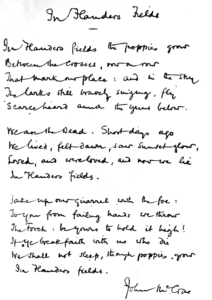 Inspired by McCrae’s poem, an American woman, Moina Michael, was the first to wear a poppy in honor of those who had died in the nation’s service. The tradition spread to other countries and in 1922 the Veterans of Foreign Wars became the first organization to adopt the poppy as a symbol of remembrance and Memorial Day. Today, paper poppies, assembled by disabled and aging veterans, are sold to benefit veterans’ services.
Inspired by McCrae’s poem, an American woman, Moina Michael, was the first to wear a poppy in honor of those who had died in the nation’s service. The tradition spread to other countries and in 1922 the Veterans of Foreign Wars became the first organization to adopt the poppy as a symbol of remembrance and Memorial Day. Today, paper poppies, assembled by disabled and aging veterans, are sold to benefit veterans’ services.
It has been more than a century — and a world of change — since Lt. Col. McCrae wrote his poem, with its haunting evocation of lost lives. But his words remain a lasting legacy of the horrific battle of Ypres and a poignant reminder to those of us who live on that we, now, speak for the dead.
To you, from failing hands we throw
The torch; be yours to hold it high.
With a strong crew, a family sets out on an excursion around Truro’s Pamet Harbor. In Provincetown, Mike Winkler’s crane service places Flyer’s shuttle in the water. Boating is allowed during the pandemic, but certain rules apply. According to Gov. Charlie Baker’s announcement on May 18, if you are on a pier, marina, or ramp, you must wear a face covering if you cannot stay six feet away from others. For private boats, once in the water, only people from the same household should be on board together. Boats for hire will have to follow different rules; see Capt. Mike Rathgeber’s report. (Photos Nancy Bloom) —K.C. Myers


© 2025 The Provincetown Independent, all rights reserved.